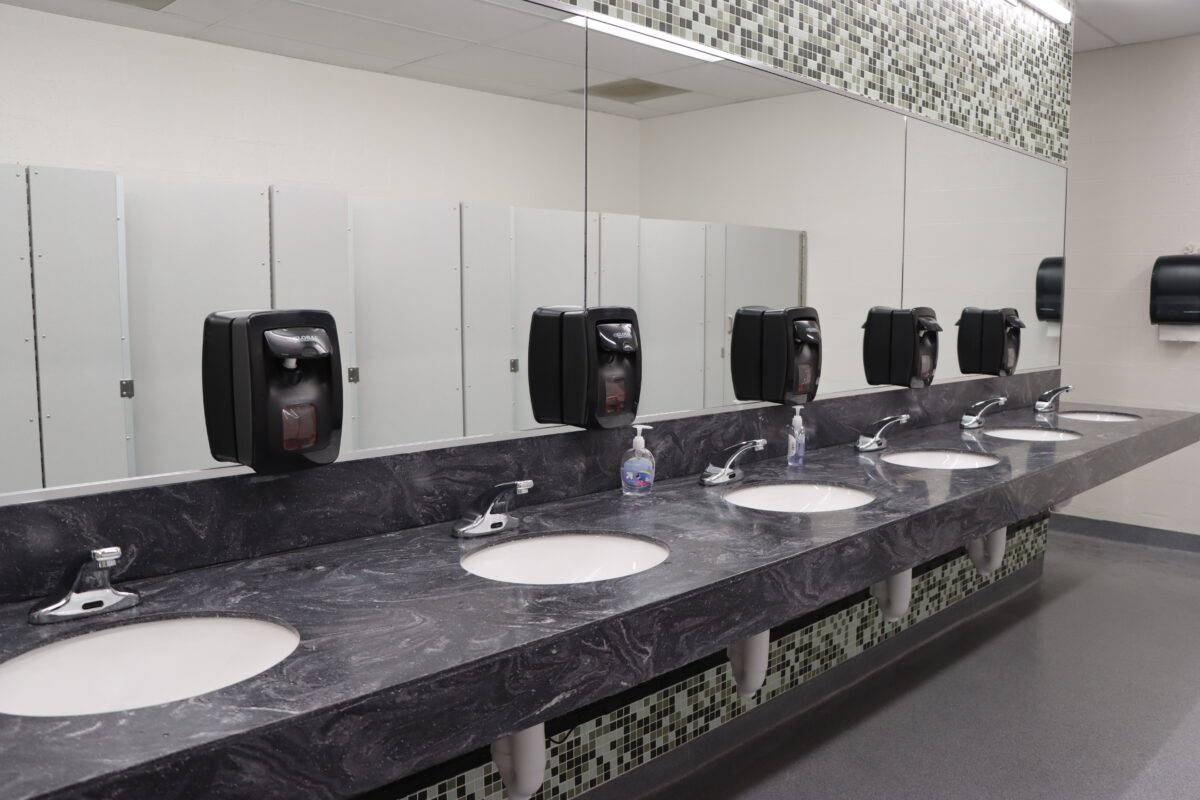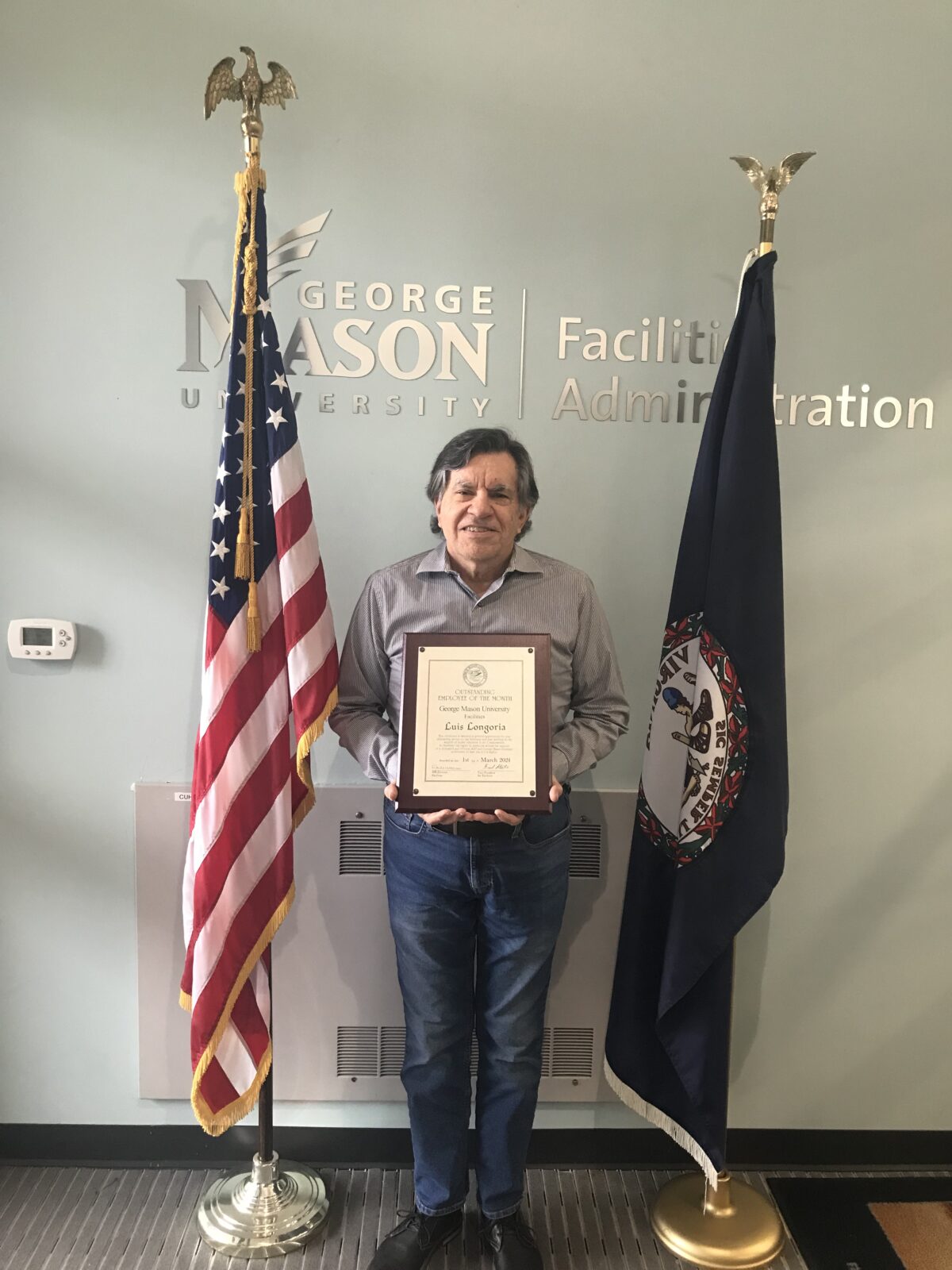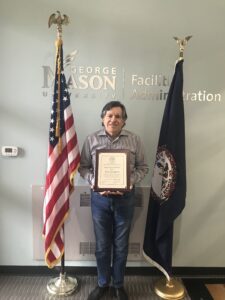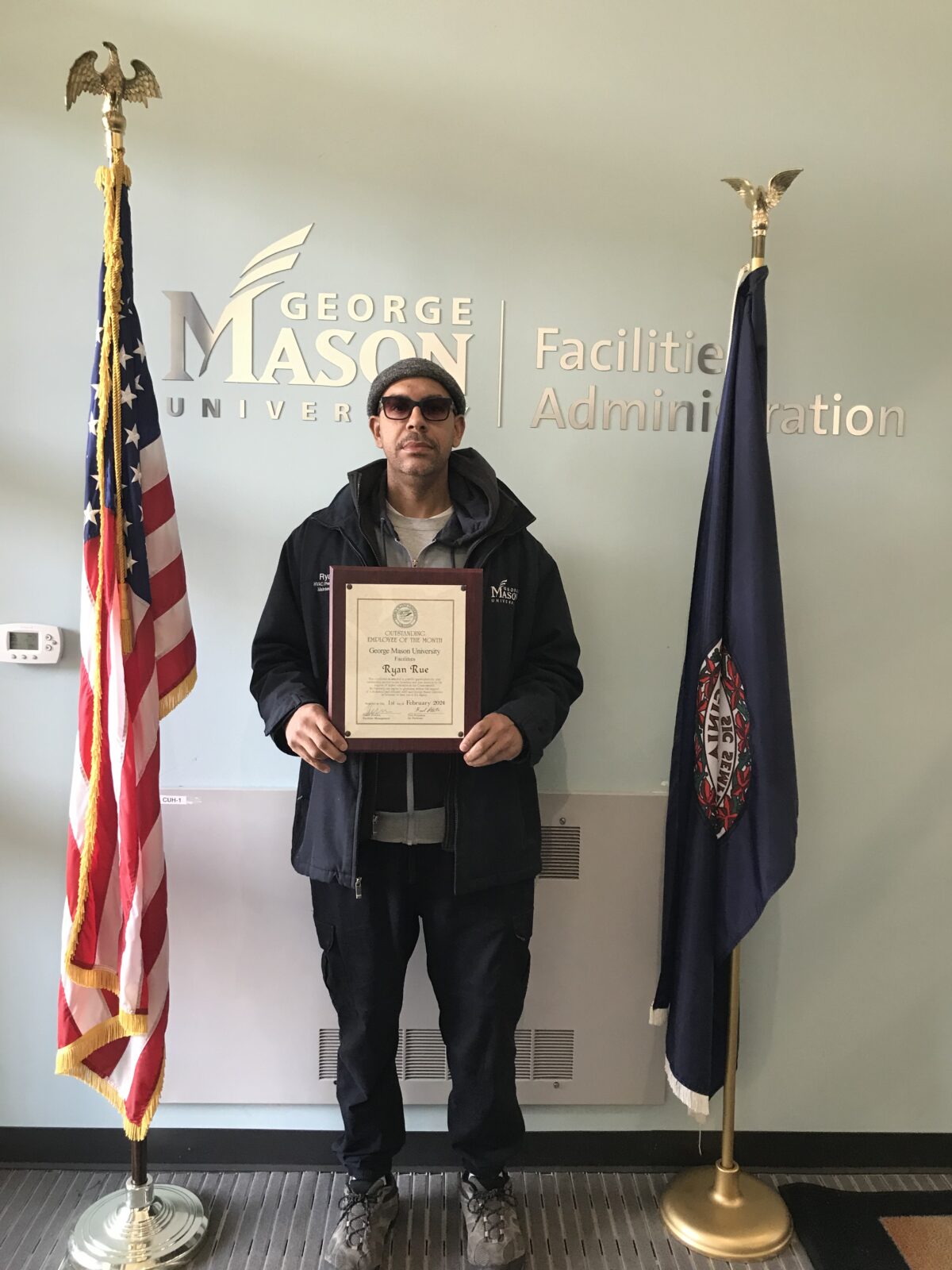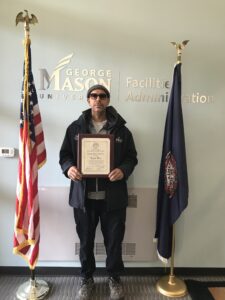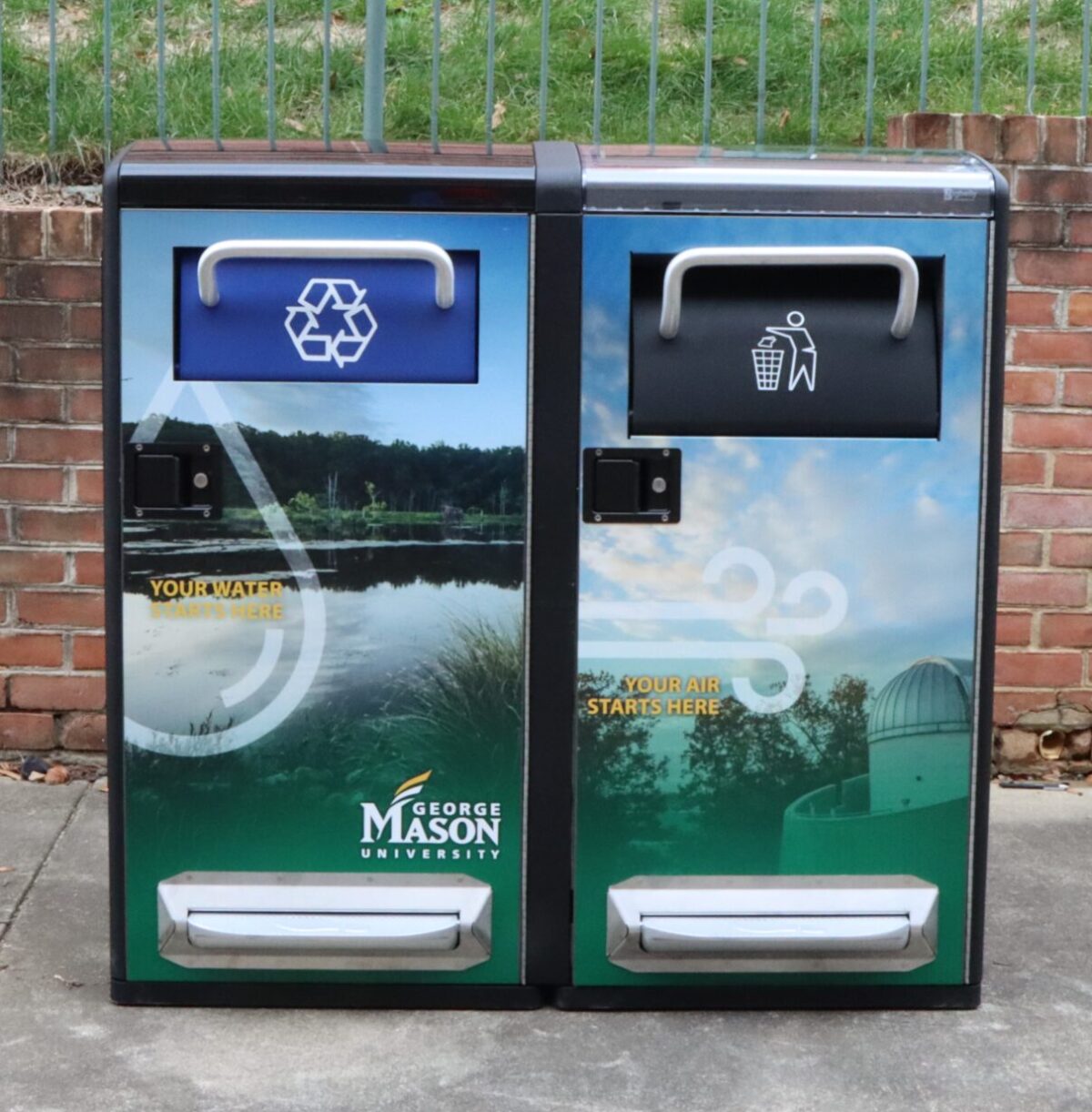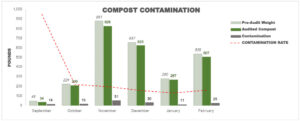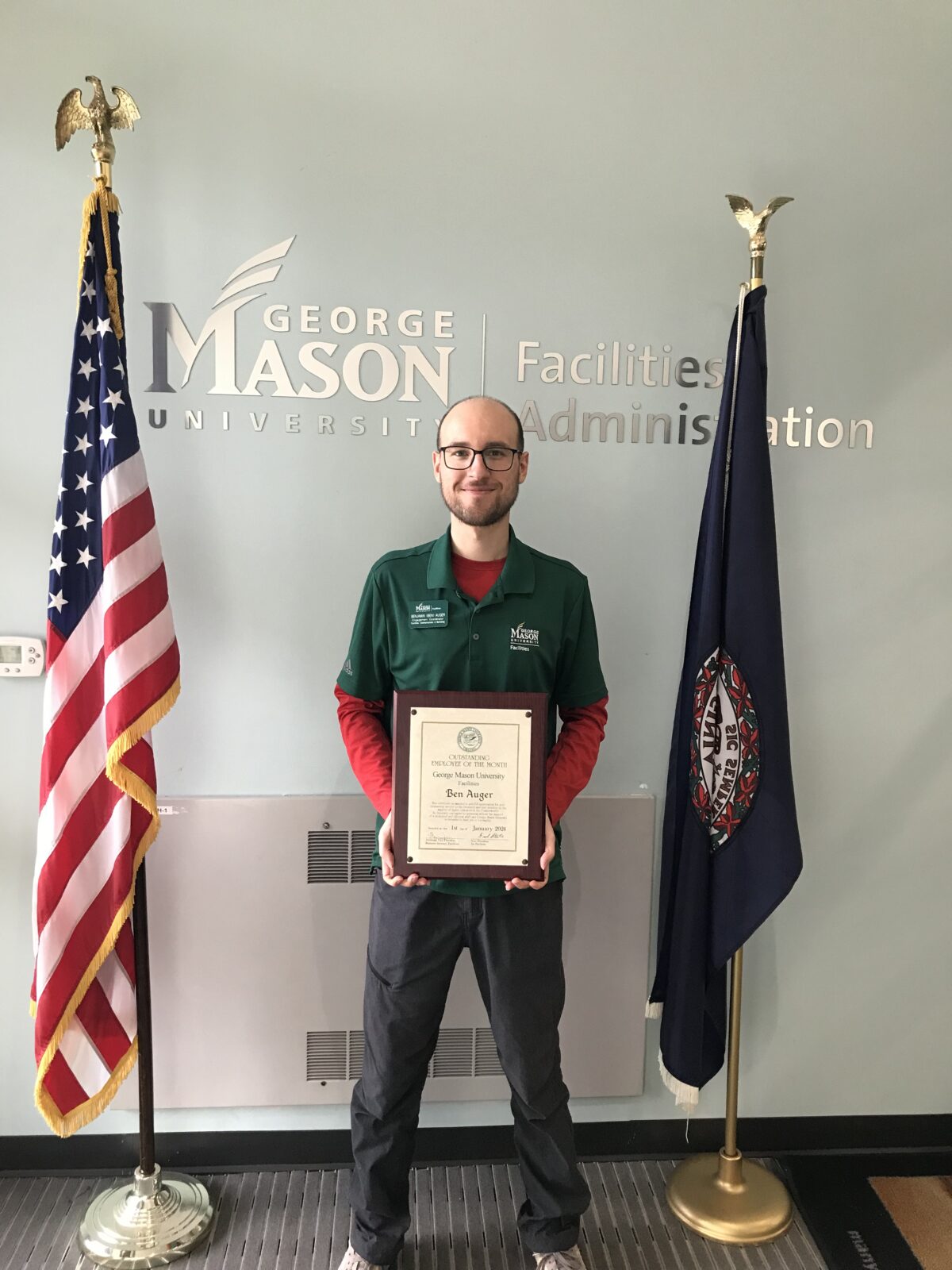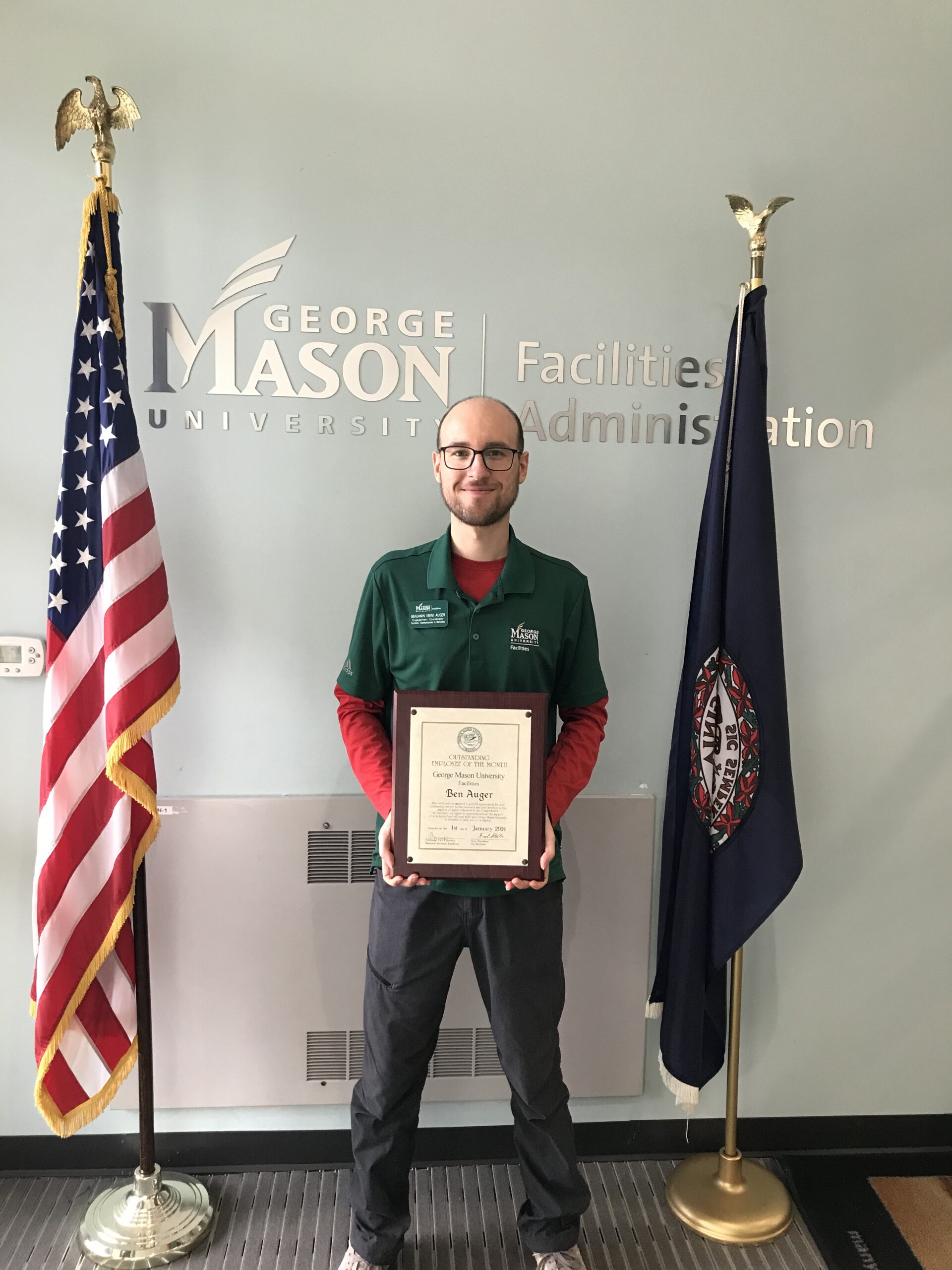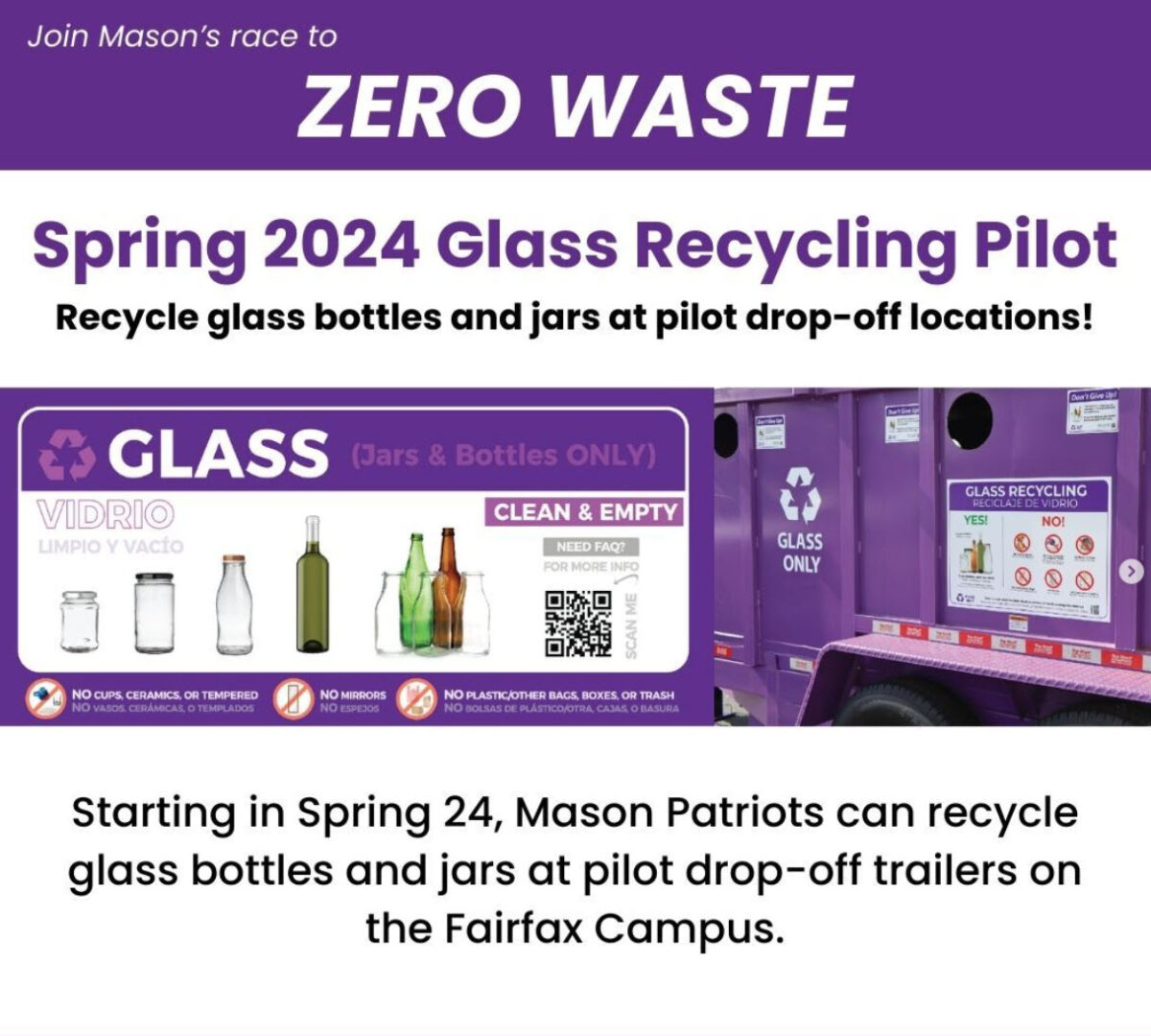Story by Doni Nolan
The Food Justice Working Group has decided to meet twice annually, having a virtual meeting each spring and an in-person workshop each fall. Their upcoming spring meeting will be held on Friday, March 22nd, 2024, at 2 pm on Teams. If you would like to be included in the meeting, and/or on their list of contacts, please email Doni at [email protected].
George Mason University has seen increasing numbers of students facing food insecurity since the pandemic, with estimates as high as 36%. To support food-insecure students, the campus food pantry has produced innovative, short-term solutions that are not sustainable to address demanding staff and inventory needs. Many students are working relentlessly to make a difference to address hunger in their college community, but they cannot do it alone.
After a meeting with the Mason Sustainability Council to pitch the launch of the Flora, Fauna, and Food Task Force, it became obvious that the need to address hunger on-campus was a priority amongst the team of staff, faculty, and student leaders. There was so much passion and demand for that branch of the Task Force that it became obvious to start the launch with those efforts. Staff within the University Sustainability team, namely, Doni Nolan, in charge of the Greenhouse & Gardens Program, worked to gather all the people associated with food insecurity efforts at Mason to plan an event where they could all discuss the barriers and potential solutions to feeding hungry students, and to encourage collaboration amongst them.
The group has since been coined the Food Justice Working Group, and the Food Justice Workshop was its first annual in-person meeting. Almost two dozen food justice leaders joined on September 13, 2023, in the Johnson Center for several hours to collaboratively develop solutions and new partnerships to address pressing food-related challenges and scale Mason’s ongoing actions in addressing food insecurity.
About half the attendees were devoted and passionate students, many of them holding multiple titles, such as roles within Student Government and Patriot PIRG (Public Interest Research Group). Two of the students, Zoe Vozick and Kacey Chung, Environmental Sustainability studies who were taking environmental course: Sustainability in Action, spoke out about their determination to reestablish the Food Recovery Network, formerly known as Campus Kitchens. The Food Recovery Network (FRN) is a US-based nonprofit that unites students on college campuses to fight food waste and hunger by recovering perishable food that would otherwise go to waste. The GMU chapter has been inactive due to the lack of a faculty advisor.
During the meeting, Zoe and Kacey announced a request for faculty or staff membership who could fill this role to allow them to reactivate the GMU branch as a formal registered student organization (RSO). Since the workshop, Zoe and Kacey have found the advisor they needed, in fact they found three faculty to share the role, and as of Spring 2024, a group of student leaders have officially registered as a student organization. They are already posting volunteer shifts to pick up leftover food from the dining halls to donate to those in need.
In support of their efforts was Mason Dining, who also had several representatives at the workshops, including their dietitian, Brooke Tresch, who has helped lead many cooking events in collaboration with the Greenhouse & Gardens Program, and who recently launched the Teaching Cooking. One major barrier to healthier and more affordable eating habits for students is learning how to prepare meals from raw ingredients. There have already been multiple events this semester that aim to inspire and educate students on making affordable food in their dorms and homes.
Tresch and Sophia Nelson, Mason Dining’s marketing specialist who was also at the workshop, have been heavily marketing their Swipe4Change initiative, which allows students to donate one guest meal, capped at 500 total per semester, to students in need, who can then swipe their own cards for free meals. Mason Dining continued their generosity of donating meal swipes to fight food insecurity with 1000 meal swipes per semester. Their donation, in addition to the Swipes4Change initiative, could provide 3000 meal swipes for food insecure students. Mason Dining also provided free catering for the workshop, which included beverages, cheese, and crackers to go with microgreens grown at the Presidents Park Greenhouse on-campus, and baked carrot skins, to exemplify how delicious cooking with scrap ingredients can be.
Of course, there were several staff from Mason’s SSAC (Student Support and Advocacy Center) within University Life, which houses the Patriot Pantry, our largest and most well-funded initiative to address hunger on our Fairfax campus. During the Fall 2023 semester, the Patriot Pantry distributed a record-breaking 11,000 lbs. of food to over 550 students. As the pantry continues to grow, the staff navigates challenges including space allocation, maintaining a stock to support high volumes of students, and various aspects of pantry management.
Receiving a larger space would allow for the Patriot Pantry to expand its services to support students experiencing food insecurity on a large scale. A space fitted with washing stations and proper electrical circuits for refrigerators and freezers would allow perishable items to be distributed to students. Mason's Facilities Administration was also more than enthusiastic to offer potential funding and construction support to make the installation possible, but Capital Strategy and Planning will need to be involved for space allocations.
Mason’s Auxiliary Services and Operations team was also there, being represented by Jonathan Elwell and Pascal Petter, who work to connect Mason with its contractors such as Mason Dining. They were both very eager to support efforts to address hunger at Mason. They currently have going the Mason4Change program that raised almost $2,000 for a grant to SSAC.
During the workshop, Petter also shared his knowledge about the legal requirements of donating leftover food from catered events and kitchens via the Bill Emerson Good Samaritan Act. Leftovers cannot be donated to individuals, but they can be donated to a non-profit, such as the Food Recovery Network. With everyone’s collaboration the Food Justice Working Group plans to create infrastructure opportunities to have a (walk-in) freezer installed so that leftover meals can be donated to the Food Recovery Network and offered to students through the Patriot Pantry. After the workshop, there were many clear paths forward and avenues of hope for everyone in attendance.
If you or someone you know would like access to free vegetables, fruit, leafy greens and herbs, the Greenhouse & Gardens Program offers them to anyone in the community willing to stop by and pick them up. Create an account on their Sustainable Sign-Ups portal to choose a time slot for Produce Pick-Ups, which continues year-round in their heated greenhouse and just started at the garden. Read more about Mason’s efforts to address food insecurity in this article.


